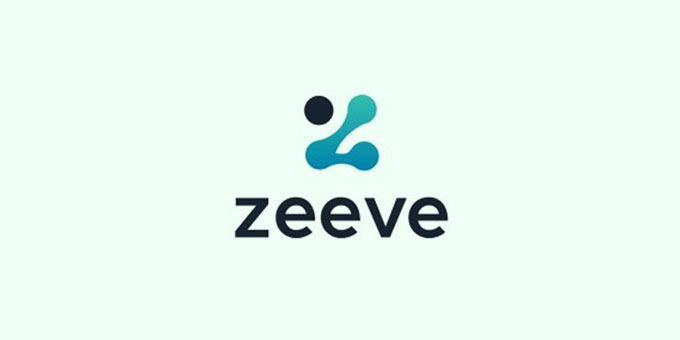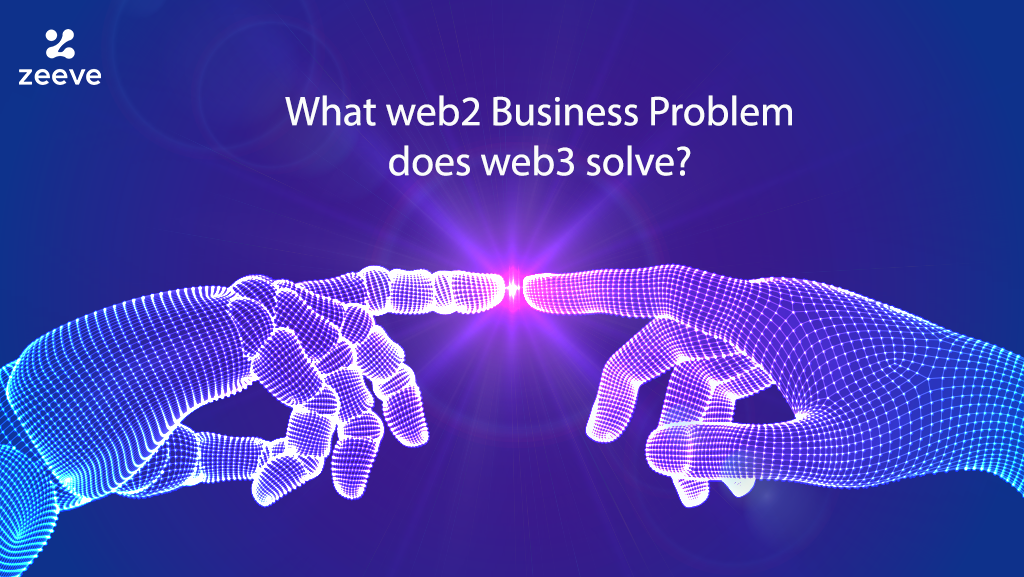Driven by the blockchain technology, web 3.0 is already creating ripples and also bringing in changes in the way how businesses operate. Some businesses have already taken initiatives, while many are still exploring opportunities to adopt the new iteration to set up efficient, low-cost web 3.0 business models to operate in. The increased rate of adoption of web 3.0 has led to popularity of several blockchain protocols among businesses chosen largely for building scalable, fast dApps. However, the one that is most preferred by businesses for its low cost, Solidity-compatible dApps creation is Avalanche. With avalanche – open, programmable smart contracts platform, businesses can deploy blockchain protocols that fit their own decentralized application needs.
In this article, we would take an in-depth look at how web3 will reinvent the internet business and how web 3.0 is helping resolve the problems that plagued the web 2.0 and helping businesses gain a competitive edge.
Evolution of the web from web 1.0 to web 3.0
Let us quickly investigate a brief history of the World Wide Web. In web 1.0 (from 1995 to 2005), the World Wide Web was used primarily for the exchange of information, while web 2.0 (from 2006 to the present day) deals with user-generated content, big data, and advertising. This is the era in which the worldwide growth of social networking takes place, allowing users to share information and digital resources. Both Web 1.0 and Web 20.0 involve data being stored on centralized servers.
The web has undergone several major changes ever since the introduction of the first web version in the 90s, and these transformations have largely been in terms of the data usage and also interactivity. In the third phase of the web evolution – web 3.0 showed that the real power lies with the users. Web 3.0 is built using the consensus algorithm and peer to peer as a basis. A core component of the distributed consensus for Web 3.0 is the blockchain technology. Web 3.0 business ideas are being thought of as the potential solutions to a number of key challenges that users face with web 2.0 such as data breaches, compromised online security and privacy.

Web 3.0 Powers Decentralized Network
Unlike the other two versions of the web 1 and 2, the Web 3.0 blockchain stack has a decentralized network that gives ownership to the users and grants no benefit to any kind of centralized authority. As it is governed through peer-to-peer technology, this means that knowledge will not be controlled by a centralized entity. All data will be shared across a network of various devices owned by individual users, instead of being held on a central location accessible by the entire internet community. Personal privacy and user freedom on the internet are becoming increasingly important.
The Decentralized “Semantic” Web
Web 3.0 is also often known as ‘The Decentralized Web’ or ‘The Semantic Web’ as it proposes a way to make the online content accessible for everyone on the blockchain network. The term ‘semantic’ means ‘related to meaning in language or logic.’ In the context of the semantic web, data is given meaning through its relationship to other data. The semantic technology allows users to interpret and understand online content irrespective of its construction and also interact freely.
Web 3.0 protecting the ‘real life’ identity of content users
In web2 Vs web 3, the latter is thought to be more relevant for content users as this version of the Internet can keep their real life identity protected. It also permits the buyers to anonymously comment on articles and make purchases without the seller knowing their identity. This makes it possible for individuals to engage in commerce, download images and content, and not have their reality linked to any digital transactions.
Web 3.0 places prime focus on the web content users by giving them ownership of the content and as more digital content is being produced than ever before, it is also likely to give thrust to content creators rather than just site owners. When Web 3.0 becomes mainstream, companies that move quickly toward it than others will be able to gain a significant lead over their competitors by making it easier for users to find user-friendly, secure content solutions via better on-boarding processes.
Increased adoption of Web 3.0 by businesses
Web 3.0 opportunities and the Blockchain technology that powers it are being increasingly explored by business owners to resolve the problems that existed with the earlier versions of the web.
Focus on providing ownership to web users
Consumers across the globe feel worried about the unethical data collection practices and privacy issues that existed with the web 2.0. The threat to data security and privacy in the earlier versions of the web led to a heightened demand for implementation of better technology tools to ensure complete customer data privacy. Web 3.0 using the blockchain technology can help in restoring user trust as the data stored on the blockchain makes it decentralized, secure and transparent.
Protecting against hacking and identity thefts
The data on the blockchain technology is also safeguarded against hackers and identity theft. Blockchain experts believe that entrusting the ownership of data to consumers may disrupt information technology corporation plans to steal sensitive customer data. Several tech corporations that previously misused their access to the large amounts of sensitive data would now likely lose access to their ability to generate profit thanks to the decentralized and secure nature of the web 3.0.
Better and secure payment systems
Smart contracts on the blockchain network are self-executing contracts which means that the terms of the agreement between the buyer and the seller are directly recorded within the lines of code. Hence all transactions are traceable and irreversible. Smart contracts cut down time spent on facilitating secure payments significantly and they are less expensive, more accessible, secure and faster than traditional payment systems. Moreover, by deploying blockchain nodes with help from a blockchain infrastructure company like Zeeve, businesses can cut down their costs significantly. A lot of private and permissioned node deployment costs just a tenth of what they cost web 3.0 enterprises on other blockchain protocols like Ethereum.
Better on-boarding and user journeys
Blockchain technology behind the Web 3.0 facilitates the users with easier on-boarding processes. As an example, take the case of your Facebook login that gives you access to many other websites. Blockchain uses the same approach, but in comparison to that with Facebook and other tech giants that store data, the blockchain technology provides the end user complete ownership of their data. The benefit of transitioning to web 3.0 for businesses is that their clients can simply access the company website, and business organizations also don’t need to be concerned about storing any customer data at their end. In doing so, the business will remove data security challenges.
Web 3.0 technology stacks can be customized and enhanced to integrate with pre-existing databases in order to facilitate the creation and improvement of positive customer journeys. Artificial intelligence will allow sales representatives to handle repetitive tasks, freeing them to focus more on interaction with clients.
Better customer engagement
Web 3.0 features are intended to support user-generated content and enable user interaction that will likely help companies better align with the expectations of their customers. The decentralized nature of the blockchain technology helps companies to get access to the openly shared data on public blockchain protocols and change their product offerings accordingly.
Opportunities for promoting the business and bolstering innovation
Meanwhile, many businesses are already exploring non-fungible tokens (NFTs) as a method of digital marketing. Organizations are launching NFTs as digital avatars of their products in the e-commerce platform to boost the actual sales of their products in marketplaces. Luxury brands enable consumers to pre-order virtual objects which appear in games (within the cyber universe). This is an effective way to create hype and attract people to sign up for lists of items and is just one example of how Web 3.0 will link the physical and virtual worlds.
Cost-saving
SMEs will benefit in particular from the network effects that Web 3.0 will bring, which will allow them to insulate themselves from the threat posed by major players in technology. Thanks to the open-source model provided by this technology, enterprises will no longer have to pay exorbitant licensing fees and carrier fees, commission on referrals, fees for intermediary services and so on. Given the power shift is beginning to happen from the hands of the tech giants to SMEs, the latter too will have increased bargaining power. All of this will lead to improved goods and services with better pricing.
Interoperability
By leveraging the web 3.0 and interoperability features of some of the blockchain protocols such as Avalanche, enterprises can witness the easy transfers of Avalanche and other assets between blockchains.

Embrace Web 3.0 technology For Competitive Advantage
There are a lot of businesses, fleets and start-ups that are already making use of the technologies of Web 3.0 to improve their operations. Why not begin to harness them to your company’s advantage before the dawn of this new uncertain web? We advise employing some of the aforementioned technologies and brainstorming how you could approach your user experience to better utilize them to your advantage.
Several businesses have already started exploring the opportunities that the Web 3.0 brings and have started putting them to good use. More and more businesses are expected to jump on the bandwagon and gain a competitive advantage by leveraging the decentralized web 3.0 infrastructure.
How can Zeeve help you with Web 3.0?
Zeeve has been at the forefront of building web3 infrastructure and more than 10,000 developers and Blockchain startups trust Zeeve for their critical web3 infrastructure. Avalanche is one of the low-cost programmable, smart contracts platforms that Zeeve supports among others. It is faster, eco-friendly and also a much more decentralized alternative to other popular blockchains such as Bitcoin and Ethereum. Deploy Avalanche for low-cost, solidity-compatible DaPP creation. Get in touch with our team to know more.






















